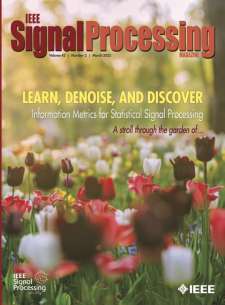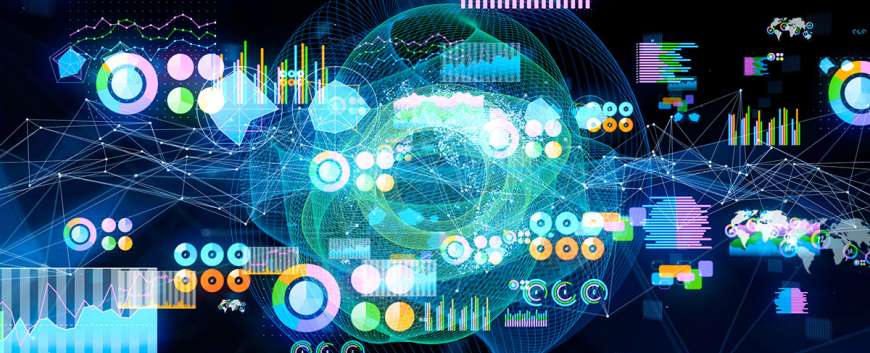- Our Story
- Publications & Resources
- Publications & Resources
- Publications
- IEEE Signal Processing Magazine
- IEEE Journal of Selected Topics in Signal Processing
- IEEE Signal Processing Letters
- IEEE Transactions on Computational Imaging
- IEEE Transactions on Image Processing
- IEEE Transactions on Information Forensics and Security
- IEEE Transactions on Multimedia
- IEEE Transactions on Signal and Information Processing over Networks
- IEEE Transactions on Signal Processing
- IEEE TCI
- IEEE TSIPN
- Data & Challenges
- Submit Manuscript
- Guidelines
- Information for Authors
- Special Issue Deadlines
- Overview Articles
- Top Accessed Articles
- SPS Newsletter
- SigPort
- SPS Resource Center
- Publications FAQ
- Blog
- News
- Dataset Papers
- Conferences & Events
- Community & Involvement
- Professional Development
- For Volunteers
- Information for Authors-OJSP
-
Home
ICASSP@50: A Recap [Conference Highlights]
Conversational Agents in the Era of Large Language Models
Conferences Events IEEE Signal Processing Magazine IEEE SPL Article IEEE TIFS Article IEEE TMM Article IEEE TSP Article Jobs in Signal Processing Lectures Machine Learning Seasonal Schools Signal Processing News SPM Article SPS Distinguished Lectures SPS Newsletter Article SPS Webinar SPS Webinars SPS Webinar Series Webinar webinars -
Our Story
What is Signal Processing?

The technology we use, and even rely on, in our everyday lives –computers, radios, video, cell phones – is enabled by signal processing. Learn More » -
Publications & Resources
-
SPS Resources
- Signal Processing Magazine The premier publication of the society.
- SPS Newsletter Monthly updates in Signal Processing
- SPS Resource Center Online library of tutorials, lectures, and presentations.
- SigPort Online repository for reports, papers, and more.
- SPS Feed The latest news, events, and more from the world of Signal Processing.
-
SPS Resources
-
Conferences & Events
-
Community & Involvement
-
Membership
- Join SPS The IEEE Signal Processing Magazine, Conference, Discounts, Awards, Collaborations, and more!
- Chapter Locator Find your local chapter and connect with fellow industry professionals, academics and students
- Women in Signal Processing Networking and engagement opportunities for women across signal processing disciplines
- Students Scholarships, conference discounts, travel grants, SP Cup, VIP Cup, 5-MICC
- Young Professionals Career development opportunities, networking
- Get Involved
-
Technical Committees
- Applied Signal Processing Systems
- Audio and Acoustic Signal Processing
- Bio Imaging and Signal Processing
- Computational Imaging
- Image Video and Multidimensional Signal Processing
- Information Forensics and Security
- Machine Learning for Signal Processing
- Multimedia Signal Processing
- Sensor Array and Multichannel
- Signal Processing for Communication and Networking
- Signal Processing Theory and Methods
- Speech and Language Processing
- Technical Working Groups
- More TC Resources
-
Membership
-
Professional Development
-
Professional Development
- Signal Processing Mentorship Academy (SigMA) Program
- Micro Mentoring Experience Program (MiME)
- Distinguished Lecturer Program
- Distinguished Lecturers
- Distinguished Lecturer Nominations
- Past Lecturers
- Distinguished Industry Speaker Program
- Distinguished Industry Speakers
- Distinguished Industry Speaker Nominations
- Industry Resources
- IEEE Training Materials
- Jobs in Signal Processing: IEEE Job Site
-
Career Resources
- SPS Education Program Educational content in signal processing and related fields.
- Distinguished Lecturer Program Chapters have access to educators and authors in the fields of Signal Processing
- Job Opportunities Signal Processing and Technical Committee specific job opportunities
- Job Submission Form Employers may submit opportunities in the area of Signal Processing.
-
Professional Development
-
For Volunteers
-
For Board & Committee Members
- Board Agenda/Minutes* Agendas, minutes and supporting documentation for Board and Committee Members
- SPS Directory* Directory of volunteers, society and division directory for Board and Committee Members.
- Membership Development Reports* Insight into the Society’s month-over-month and year-over-year growths and declines for Board and Committee Members
-
For Board & Committee Members
Popular Pages
Today's:
- Information for Authors
- ICASSP@50: A Recap [Conference Highlights]
- (ICME 2026) 2026 IEEE International Conference on Multimedia and Expo
- IEEE Transactions on Information Forensics and Security
- IEEE JSTSP Special Issue on Advanced AI and Signal Processing for Low-Altitude Wireless Networks
- IEEE Transactions on Image Processing
- IEEE Transactions on Multimedia
- Information for Authors-SPL
- (CAI 2026) IEEE Conference on Artificial Intelligence 2026
- Conference Call for Papers
- IEEE Signal Processing Letters
- Guidelines
- Submit a Manuscript
- Building Bridges for Our Professional Future [President’s Message]
- Signal Processing Cup
All time:
- Information for Authors
- Submit a Manuscript
- IEEE Transactions on Image Processing
- IEEE Transactions on Information Forensics and Security
- IEEE Transactions on Multimedia
- IEEE Transactions on Audio, Speech and Language Processing
- IEEE Signal Processing Letters
- IEEE Transactions on Signal Processing
- Conferences & Events
- IEEE Journal of Selected Topics in Signal Processing
- Information for Authors-SPL
- Conference Call for Papers
- Signal Processing 101
- IEEE Signal Processing Magazine
- Guidelines
Last viewed:
- IEEE Transactions on Image Processing
- ICASSP@50: A Recap [Conference Highlights]
- IEEE Signal Processing Cup 2025
- IEEE SPS School on Networked Federated Learning: Theory, Algorithms and Applications
- (ICIP 2026) 2026 IEEE International Conference on Image Processing
- Call for Proposals: (SLT 2026) 2026 IEEE Workshop on Spoken Language Technology
- (ISBI 2024) 2024 IEEE International Symposium on Biomedical Imaging
- Information for Authors
- IEEE Transactions on Multimedia
- IEEE Journal of Selected Topics in Signal Processing (JSTSP) Special Series on AI in Signal & Data Science -- Toward Large Language Model (LLM) Theory and Applications
- (ICME 2026) 2026 IEEE International Conference on Multimedia and Expo
- Call for Proposals: 2028 IEEE International Symposium on Biomedical Imaging (ISBI)
- Annual Call for Proposals
- ICASSP 2011 Video Recordings Now Available Online
- Chapter Resources
Twenty-Five Years of Evolution in Speech and Language Processing
You are here
Publications & Resources
Signal Processing Magazine
For Authors
Top Reasons to Join SPS Today!
1. IEEE Signal Processing Magazine
2. Signal Processing Digital Library*
3. Inside Signal Processing Newsletter
4. SPS Resource Center
5. Career advancement & recognition
6. Discounts on conferences and publications
7. Professional networking
8. Communities for students, young professionals, and women
9. Volunteer opportunities
10. Coming soon! PDH/CEU credits
Click here to learn more.
Twenty-Five Years of Evolution in Speech and Language Processing
In this article, we summarize the evolution of speech and language processing (SLP) in the past 25 years. We first provide a snapshot of popular research topics and the associated state of the art (SOTA) in various subfields of SLP 25 years ago, and then highlight the shift in research topics over the years. We describe the major breakthroughs in each of the subfields and the main driving forces that led us to the SOTA today. Societal impacts and potential future directions are also discussed.
Introduction
The year 2023 marks the 75th anniversary of the IEEE Signal Processing Society (SPS). Technologies have been significantly advanced in these 75 years, and society has been greatly impacted by these advances. For example, the mobile Internet has greatly changed people’s lifestyles. Researchers and practitioners in signal processing have contributed their share to these progresses.
In this article, we concentrate on the field of SLP, which is the scope covered by the IEEE Speech and Language Processing Technical Committee (SLTC), and summarize the major technological developments in the field and the key societal impacts caused by these advances in the past 25 years.
As part of the SPS, the SLTC serves, promotes, and influences all the technical areas of SLP, including automatic speech recognition (ASR), speech synthesis [often referred to as text to speech (TTS)], speaker recognition (SPR) and diarization, language identification (LID), speech enhancement, speech coding, speech perception, language understanding, and dialog systems.
The SLTC can trace its roots back to the Institute of Radio Engineers Audio Group, founded in 1947. In 1969, this audio group established the Speech Processing and Sensory Aids Technical Committee. “Sensory Aids” was dropped from the name in the early 1970s. For more than 30 years, it remained the Speech Processing Technical Committee. In 2006, its scope was expanded, and its name was officially changed to the SLTC.
SPS Social Media
- IEEE SPS Facebook Page https://www.facebook.com/ieeeSPS
- IEEE SPS X Page https://x.com/IEEEsps
- IEEE SPS Instagram Page https://www.instagram.com/ieeesps/?hl=en
- IEEE SPS LinkedIn Page https://www.linkedin.com/company/ieeesps/
- IEEE SPS YouTube Channel https://www.youtube.com/ieeeSPS
Home | Sitemap | Contact | Accessibility | Nondiscrimination Policy | IEEE Ethics Reporting | IEEE Privacy Policy | Terms | Feedback
© Copyright 2025 IEEE - All rights reserved. Use of this website signifies your agreement to the IEEE Terms and Conditions.
A public charity, IEEE is the world's largest technical professional organization dedicated to advancing technology for the benefit of humanity.













